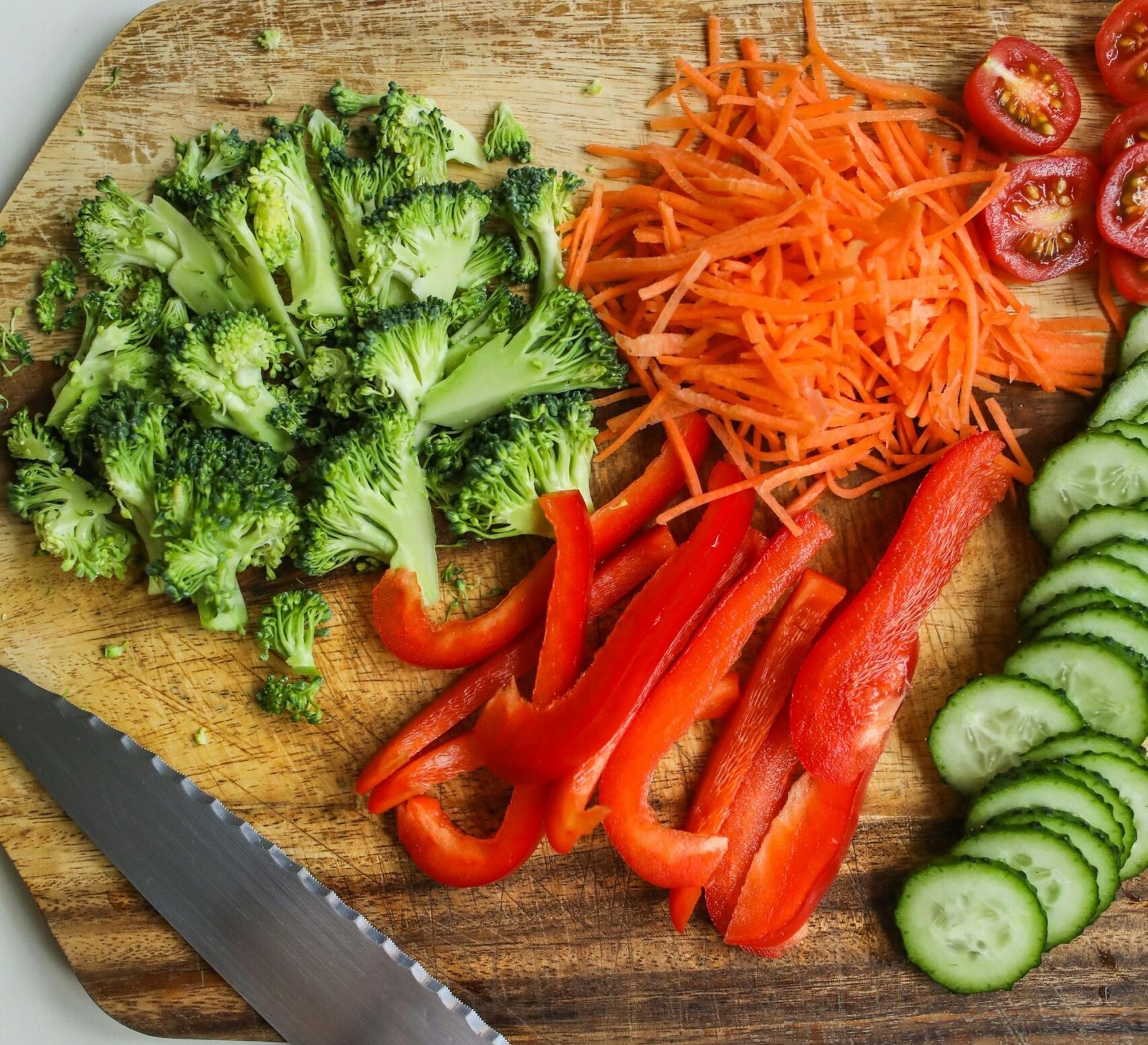The best vegetables for weight loss are those that are low in calories and high in fiber, helping you stay full and support your weight loss goals. Incorporating these nutrient-dense veggies into your diet can make a significant difference. Vegetables generally offer a high water content and filling fiber, which aids in satiety and reduces the urge to snack. Here’s a list of the top 13 vegetables that can help you on your weight loss journey:
Table of Contents
Toggle1. The Best Vegetables for Weight Loss: Why Spinach Tops the List
Spinach is an exceptional choice for weight loss. With just 20 calories per three-cup serving, it’s rich in fiber, vitamins K, C, and A. Its high water content (around 91%) also helps keep you hydrated and full. Spinach can be used in salads, smoothies, or sautéed as a side dish. Studies have shown that eating spinach regularly is linked to weight loss.
2. Broccoli
Broccoli is versatile and fiber-rich, making it great for weight management. One cup of cooked broccoli has about 5 grams of fiber and just 55 calories. It’s also packed with vitamins C and K. Roasted or steamed, broccoli makes a satisfying side dish or can be incorporated into various recipes, including pasta and salads.
3. Asparagus
Asparagus is another low-calorie vegetable, with just 40 calories per cup and 3.6 grams of fiber. Its fiber content helps you feel full and satisfied. Asparagus can be enjoyed steamed, grilled, or added to dishes for a nutrient boost.
4. Spaghetti Squash
Spaghetti squash is an excellent low-calorie substitute for traditional pasta. With only 42 calories per cup, it’s a filling option that helps you stay full longer. You can use it in a variety of dishes, such as spaghetti squash marinara or stuffed squash recipes.
5. Brussels Sprouts
Brussels sprouts are high in fiber and low in calories, with about 56 calories per cup and 4 grams of fiber. They are also rich in antioxidants and phytochemicals that support overall health. Enjoy them roasted, sautéed, or in a Brussels sprouts slaw.
6. Cauliflower
Cauliflower is versatile and low in calories, containing 29 calories per cup. It’s rich in fiber and can be used as a substitute for rice, pizza crust, or mashed potatoes. This cruciferous vegetable also has plant sterols that support heart health.
7. Green Peas
Green peas are a great source of fiber, with nearly 9 grams per cup. They also provide a bit of protein and are low in calories (about 62 per cup). Peas can be added to soups, salads, or served as a side dish.
8. Carrots
Carrots offer a satisfying crunch with 50 calories per cup and 3.4 grams of fiber. They are rich in beta-carotene, which has been associated with a lower risk of type 2 diabetes and other chronic diseases. Carrots can be enjoyed raw with hummus or roasted as a side dish.
9. Bell Peppers
Bell peppers are low in calories and high in nutrients. A cup of raw red bell peppers contains 39 calories, 3.2 grams of fiber, and over 400% of the daily value for vitamin C. They add color and crunch to salads, sandwiches, or can be sautéed for a flavorful dish.
10. Zucchini
Zucchini is another low-calorie vegetable with only 27 calories per cup. It provides 2 grams of protein and 1.8 grams of fiber. Zucchini can be used in stir-fries, as a pasta substitute (zoodles), or added to casseroles for a nutritious boost.
11. Green Beans
Green beans are low in calories (37 per cup) and high in fiber (3.8 grams). They also provide a bit of protein. They are perfect roasted with garlic and olive oil or added to various dishes for added texture and nutrition.
12. Cabbage
Cabbage is low in calories and high in fiber, with about 35 calories and 2.8 grams of fiber per cup. It can be enjoyed in various forms, including raw, sautéed, or fermented into kimchi. Cabbage is also associated with reduced cardiovascular disease risk.
13. Edamame
Though slightly higher in calories, edamame is packed with protein and fiber, making it a filling snack. One cup of shelled edamame provides 188 calories, 18 grams of protein, and 8 grams of fiber. Edamame can be added to salads, stir-fries, or enjoyed as a simple snack.
Conclusion
Incorporating these vegetables into your diet can help you manage your weight while providing essential nutrients. Their low calorie content, high fiber, and versatility make them excellent choices for a healthy eating plan. Whether you’re roasting, steaming, or using them in various recipes, these vegetables support weight loss and overall well-being.



